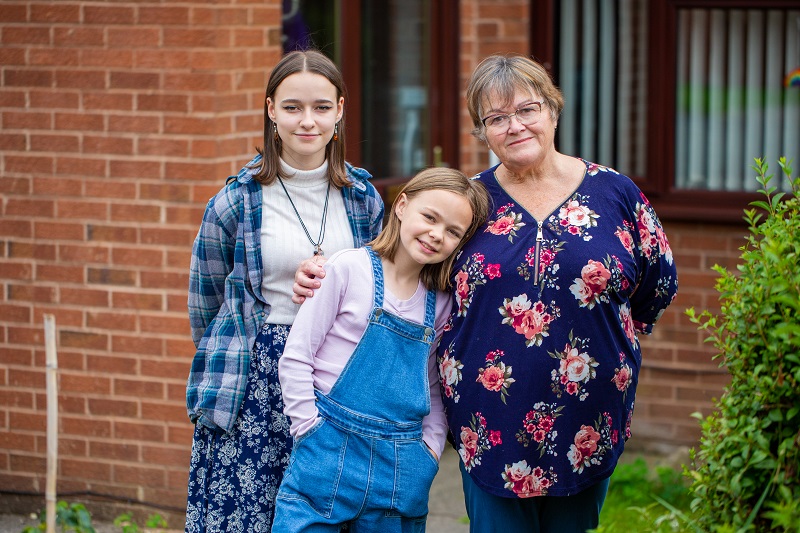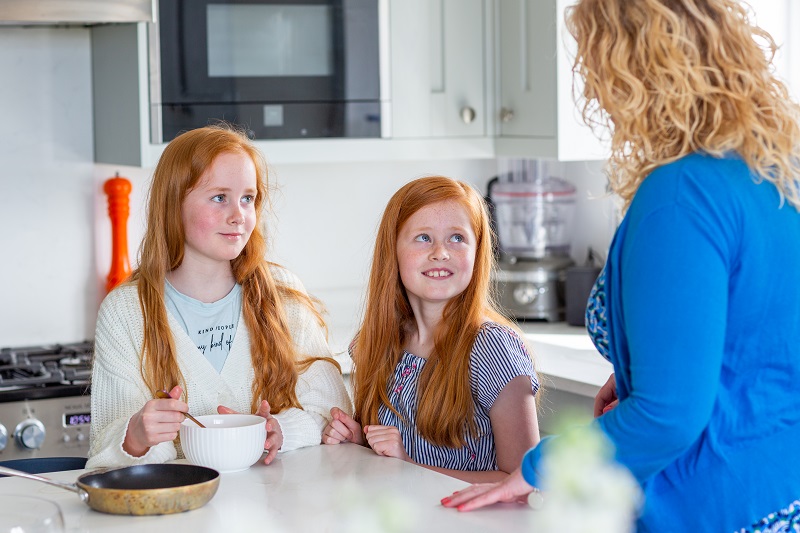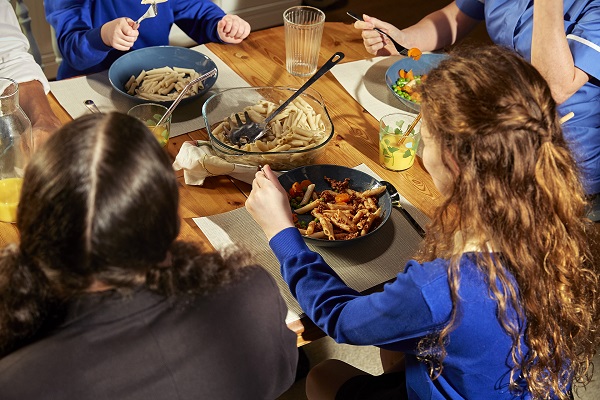
This blog is written by Elliot and Mel, care-experienced young people at Voices From Care Cymru.
From how to welcome a foster child into your home and make a foster child feel welcome to saying goodbye to a foster child, here, they share their tips for foster carers.
saying hello to a foster child
Elliot shares their advice for how to welcome a foster child into your home.
introduce yourself to the child
If possible, a child could be shown some up-to-date photos before they arrive, so they know what to expect behind the front door.
(At Foster Wales, all foster carers can update their welcome information online before a child arrives.)
show them to “their” space e.g. their bedroom
They need to know that this is their space, and that they will be safe.
show them where the kitchen is and the bathroom
Children may feel worried about helping themselves to a drink or whether they need to ask. They may worry about waking the family by going to the toilet in the middle of the night or forget which door it is.
allow them to decompress before going through house rules and boundaries
Keep it simple in the first introductions. Stick to the basics; bedroom, bathroom, and kitchen.

bedtime
For a young child, offer to read them a book before bed.
For an older child offer a hot drink as this can help them relax.
showers and baths
Ask is they want to shower. If they don’t want to, gently encourage it but don’t push it. It can feel scary to get undressed in a stranger’s home.
favourite foods
If you meet the child prior to them moving in, ask them about their favourite food and try and purchase it for them. If it’s unhealthy, it doesn’t matter for one night. It’s a comfort.

favourite colour
If you meet the child prior to them moving in, ask them their favourite colour and possibly get them bedding in that colour.
mobile phones
For an older child, unless its specifically stated by the social worker dropping them off, don’t remove devices for the first few nights.
knock on the door if they need you
Show the child where they can find you during the night and remind them to knock and you will come to the door.
questions
Don’t ask probing questions like “why are you in care?” or “why were you moved?”
who’s who
Keep a binder or folder on hand with contact details for yourself and immediate foster family members, as well as photos of yourself and your family.

visitors
Where possible, avoid having family members or other visitors around for the first few days.
pocket money
It’s fine to give your foster child pocket money, but keep it a fair and realistic amount.
how to say goodbye to a foster child!
The role of a foster carer is a stepping stone to a positive future; whether transitioning from foster care back home or moving to a long-term foster carer.
Although saying goodbye to a foster child and ending a foster care placement can be tricky to navigate, it’s often possible to keep in touch too.
When a foster child leaves your home, ideally this can be carefully planned using a foster care transition plan. But, we know that unavoidable changes can happen at short notice too.
So, how do you tell a foster child they are moving?
Mel now shares their advice for saying goodbye to a foster child.

not their fault and understand why
Make sure the child knows it’s not their fault they have to move placement or back home and that any feelings about this are valid. Make sure they are comfortable, and they understand why these decisions are made.
I would recommend including the child in making these decisions and making sure these conversations are appropriate for their level of understanding. This will help them thrive in future.
belongings
Make sure all the child’s belongings are taken with them, including any items you have bought the child. This is important because all children should be able feel that the belongings that are important to them are as just important to the carer.
Even if these things look broken or tatty, the smallest of things have a meaning for these children and that needs to be recognised. One young person told us taking the bedding from their last placement helped them feel safe and comfortable and cared for.
luggage
Make sure the child’s belongings are packed in appropriate luggage such as a duffle bag or suitcase. This is important because no child should ever have to pack their belongings in black bags. They should never feel embarrassed when they are moving because of the way their belongings are packed.
Think about it… when you throw things out because they are of no use and you class them as rubbish, you put these in a black bag, recycling bag, or a supermarket bag before you put them in the bin.
So, I would ask you, do you think it’s appropriate to ask a child or a young person to put everything important to them in a rubbish bag?
time to process the move
Allow the child or young person time to process the move and, where possible, have visits at the new foster carer’s home.
This is important because every child should know that their feelings are valid and that they are being listened to. They should have the chance to prepare for their new home and to learn about their new family.
We are always told not to talk to strangers and about stranger danger, but us young people who are put into the care system are told we must live with strangers. We are expected to trust them and tell them our whole life story after only just meeting them.
You can help a child or young person prepare for their next move by answering their questions and listening to their worries. You can provide them with information about where they are moving to.

stay in contact
Be willing to stay in contact or be contacted in the future, if possible. This is important because the child may feel able to trust you.
We know many young people don’t have strong healthy relationships. So, by continuing positive relationships, this can help their future development.
Teaching children and young people to build positive relationships, and helping them to learn to set boundaries as a child, helps them to carry this into adulthood. This can prevent unhealthy relationships in the future.
hugs and memories
Give hugs and share memories with the child of their time with you because it’s important for the child to feel loved and cared for. The child should know that the family enjoyed their time with them and still care about them. This adds to our memories and helps us build positive identities for ourselves. Even think about writing this down in a memory journal.
Don’t forget you are building these children’s life stories and contributing to who that child is going to be in the future.

are you ready to say hello?
If you would like to learn more about Voices From Care Cymru or feel you could offer a warm welcome to a child and become their stepping stone to a better future, contact your local Foster Wales team today.

